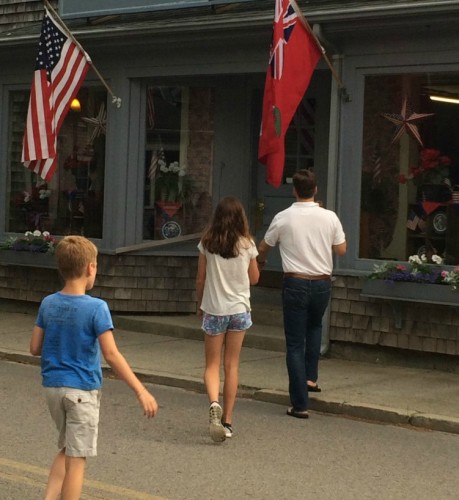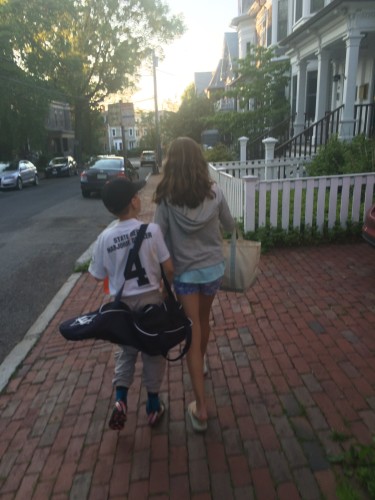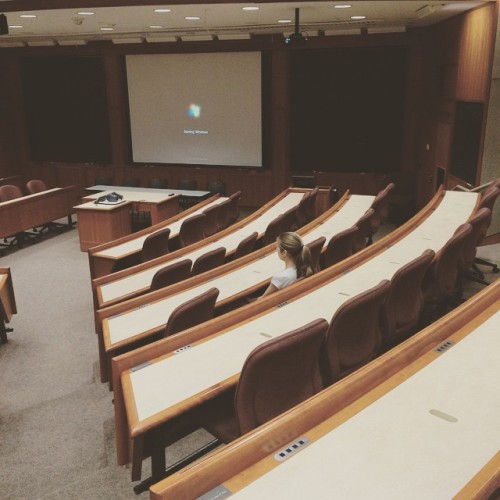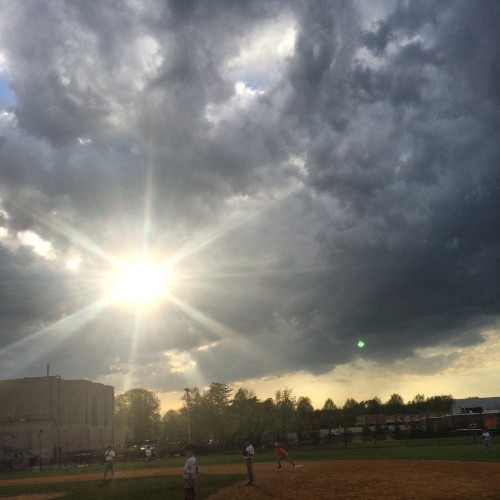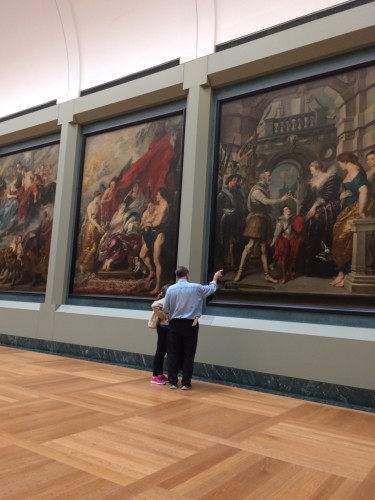
Grace and my father at the Louvre. All the selfie-takers were focused on the more famous art, and this room was deserted.
“The stick is the sword in the selfie army,” my 10 year old son observed as we walked underneath the Eiffel Tower, last month in Paris. I looked at him, laughed, and dodged another group of tourists gathering together to take a photo of themselves with the soaring steel gridwork of Paris’s most famous landmark in the background.
We were in Paris for a week. We saw the Mona Lisa, the Eiffel Tower, Napoleon’s tomb, more pieces of art and history than I can remember. We also saw dozens and dozens and dozens of people taking selfies. At the Louvre we couldn’t see the more famous works of art. We couldn’t see through the thick throng of phones, held overhead.
The people had their backs to the art. They were looking at them through the camera lens, and with their own smiling face in the foreground. Maybe I’m old. Well, actually, yes, I’m definitely old. But still, I found it shocking.
I was shocked because people weren’t looking at Paris. They were looking in the lenses of their phones. This once-in-a-lifetime experience was mediated through the lens of a phone camera. I’ve observed this before, particularly at school concerts and plays. I have been guilty of this, myself, of missing whole swaths of an experience or a performance because I was so focused on getting a good photo of it. All around me, in the lower school gym, there are glowing screens and parents videotaping a concert. Their witnessing of the experience is secondary to their recording of it. In the last few years, though, I’ve tried harder to put my phone down and to simply be here now – be here now, what my someday-maybe-dream tattoo will say, on my wrist – and trust that the memories I make are richer and more colorful than any photo would have been.
What I saw in Paris was different than what I’ve seen in the lower school gym, though. Yes, the parents and the tourists were both mediating their experience through a camera lens. But the tourists were experiencing Paris backwards, in order to make sure they themselves were in the photos. They weren’t looking at the city; they had their back to it.
The truth is, this question felt uncomfortably close, because I’m often anxious about the solipsism inherent in writing personal essay. Is it the same thing as what I observed in the Louvre, people inserting themselves into every photo? It strikes me that it’s not. I write what I see, and my gaze is turned out, onto the world. The essays I write – and, perhaps more importantly, the ones I am drawn to reading– are insistently outwardly focused. They are about subjectivity only in so far as that is the filter through which the world is viewed. This makes me think of the Aikra Kurosawa quote: “An artist is one who does not avert her gaze.” When I read that passage, I think of writers and artists whose work I admire: their gaze is outward.
What I witnessed in Paris, which made me sad, is the insistent viewing of oneself in every frame. The lens is literally turned. The photo, or the essay – and the experience – is self-reflexive. It’s about the subject primarily, rather than secondarily.
I couldn’t stop thinking about the young adults whose back was to Paris. Yes, it made me sad to see this, but what’s really going on? IS that generation insecure about their place in the world? What underlies their aggressive need to assert that they are there? Or has the culture become so self-centered that all that matters is our own experience of something, of documenting that we were there?
I’m not sure. But I do know that there’s something sad about turning your back to Paris, even if you get a great shot of your face with the blurry Mona Lisa in the background.
I wrote this piece after our March trip to Paris.

